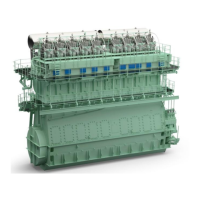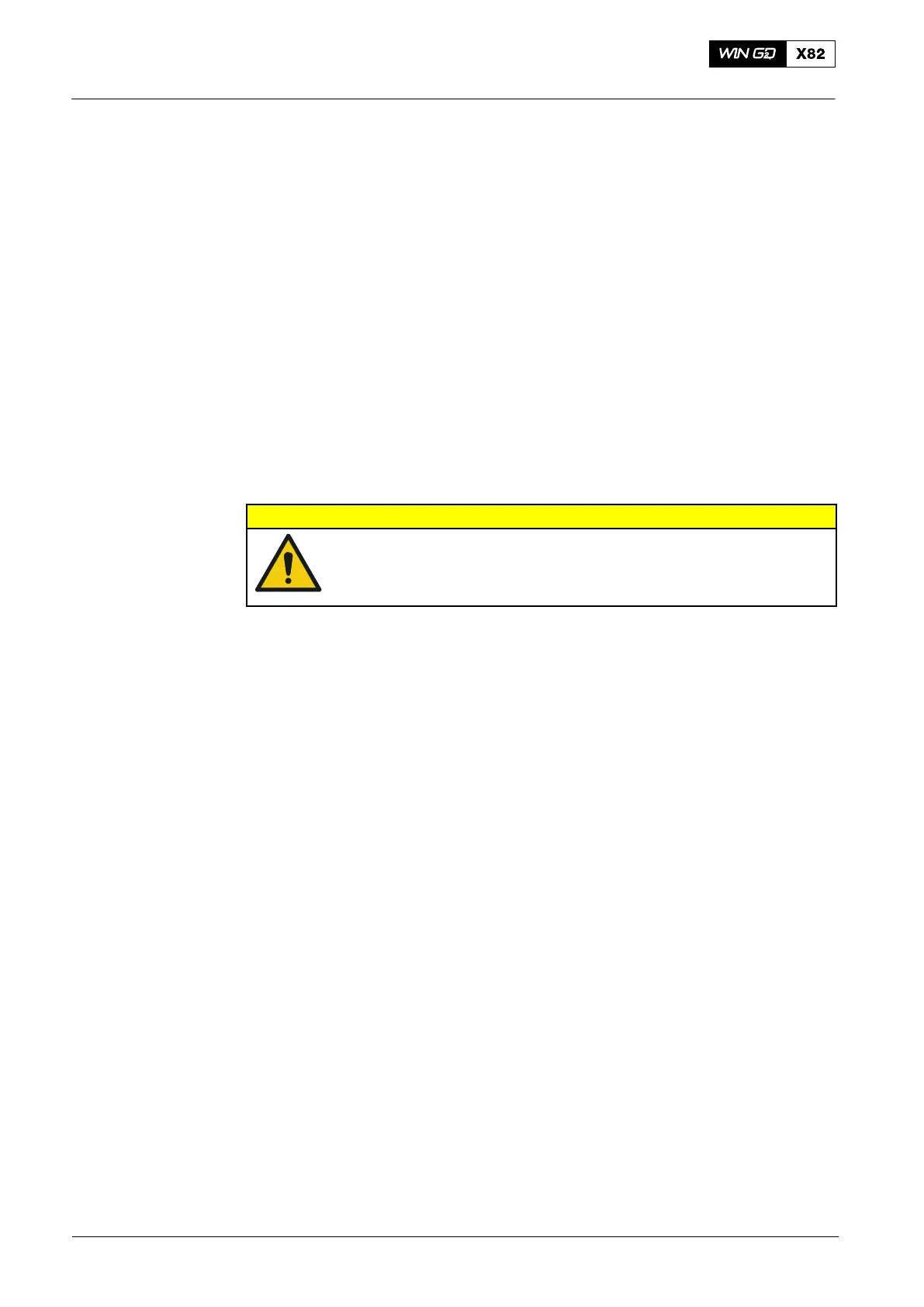Operation0760−1/A1
Winterthur Gas & Diesel Ltd.
2/ 2
4. Cleaning the Cooling Water System
For new cooling water, the full system must be clean. The system must not contain
grease, oil or unwanted particles.
During operation oil or sediment can go into the system, which can cause a decrease
in the heat transfer and cooling effect. Such problems will occur after an unusually
short time if the cooling water and system is not monitored correctly. An applicable
agent must be used for the treatment of the full system to remove grease and chalk
sediment.
Before you fill the cooling water system with new cooling water, the system must be
fully flushed. This will remove sediment and oil and make sure that remaining acids
are made neutral.
There are many cleaning agents available, which are not in a list here. It is
recommended that you speak to specialist companies that can help you.
5. Antifreeze
CAUTION
Damage Hazard: Antifreeze decreases the heat transfer rate of the
cooling water. This can cause damage to the engine. If the
concentration of the antifreeze is more than 20%, you can operate
the engine only at decreased load.
During usual operation, it is not necessary to use antifreeze. We recommend to use
antifreeze only if the engine does not operate for a long period in conditions of cold /
frost (ambient temperature below the freezing point of water).
Always use the correct water / antifreeze ratio related to the ambient temperature.
The instructions of the manufacturer must be obeyed for the correct quantity of
antifreeze.
It is possible to use each of the two types of high quality antifreeze that follow:
D Monopropylene glycol (MPG)
D Monoethylene glycol (MEG).
It is recommended that you use MPG, because it is better for the environment.
You must do regular checks during operation to keep the correct concentration.
You must obey the instructions of the manufacturer to prevent problems during
operation.
You must make sure that the cooling water system has the correct concentration of
corrosion inhibitor (see paragraph 3).
2014
Cooling Water / Cooling Water Treatment

